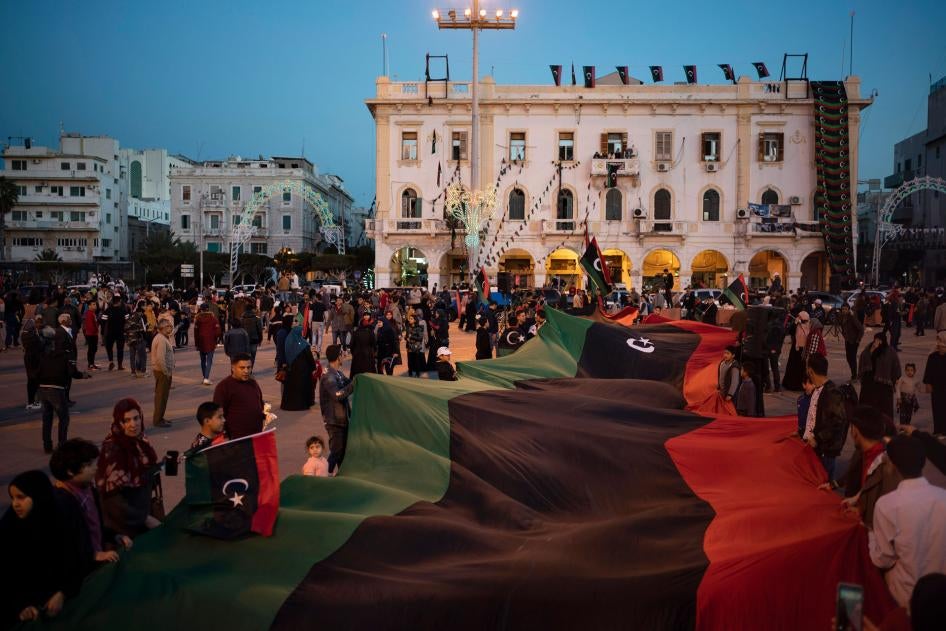Thank you, Mr. President.
Human Rights Watch welcomes the second report of the Independent Fact Finding Mission (FFM) in Libya, which found serious human rights violations perpetrated by armed groups around the country and a prevailing culture of impunity.
Our team of researchers who recently returned from visiting Libya, noted that human rights conditions remained precarious, and that armed groups continued to benefit from near impunity as political rifts deepen.
Despite improvement in the day to day life of Tripoli residents after the end of the conflict in its southern suburbs in 2020, tens of thousands remain internally displaced as a result of insecurity and armed conflicts this past decade. Hundreds of people remain missing, including many civilians. The population still suffers from destruction of critical infrastructure such as medical facilities and schools.
Authorities deepened their crackdown on civic groups in Tripoli, arbitrarily arresting and detaining people on vague speech accusations. They should all be released. Civic activist Mansour al-Maghribi, remains missing after his abduction by unidentified armed men in the eastern town of Ajdabiya, in June last year. Where is he now?
Thousands of Libyans remain held in abusive, long-term arbitrary detention often in inhumane conditions. Authorities continued to arbitrarily detain migrants and asylum seekers, who risk beatings, extortion, sexual violence, and forced labor in detention centers nominally under the state. Migrants also face abuse by armed groups and smugglers.
Residents in the southern regions of Tripoli, but also in Benghazi, Sirte and elsewhere, are at risk of serious harm and even death due to unexploded ordnance, including mines, left after several waves of conflicts from 2011 onward. There is a need for authorities to prioritize a coordinated approach to deal with the contamination.
In this context, the mandate of the FFM remains crucial to ensuring a more comprehensive review of the situation in Libya and we urge the Council to ensure it is renewed in full during its upcoming session in June.









